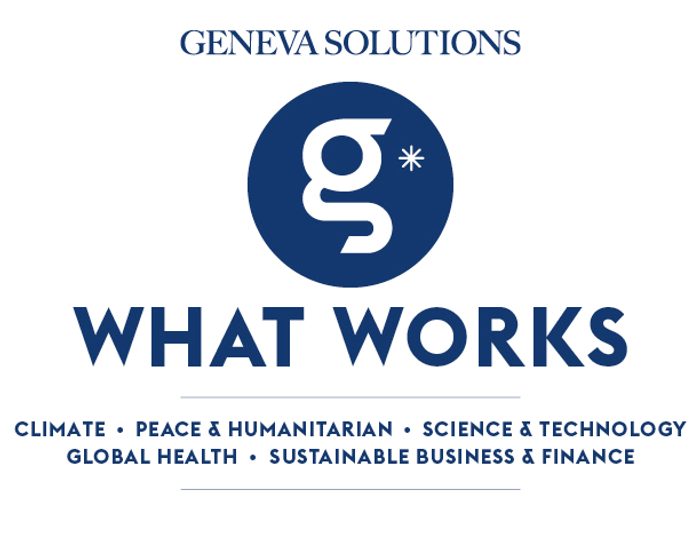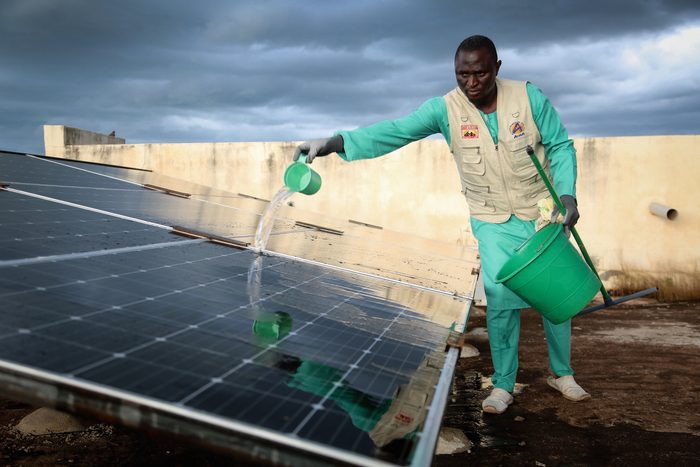|
As the world heads for a rise in global temperatures, worsening floods, droughts and other weather events threaten to upset the lives of millions of people across the globe. Humanitarian organisations, at the forefront of efforts to protect vulnerable communities, will see demand for their help skyrocket. Despite having the critical mission of saving lives, these NGOs and their operations carry a hefty price for the environment, ultimately contributing to the threat they are fighting against.
To a number of these large aid organisations, it is their moral responsibility to lead by example and shrink their own carbon footprint. For the past year, 16 of them, including the International Committee of the Red Cross and Médecins sans Frontières, have been partnering up with the Geneva-based Climate Action Accelerator to design a blueprint for their ecological transition and cut their greenhouse gas emissions by half by 2030 and reach carbon neutrality by 2050.
ALIMA, an African medical aid organisation working mainly in West Africa and the Sahel, was the first one to complete its roadmap and publish it last December. It took nine months of planning. The relatively new organisation created in 2009 and headquartered in Dakar, Senegal, is convinced of the urgency to act as it witnessed first hand the catastrophic effects of climate change in the continent.
Read the full story on Geneva Solutions
|








